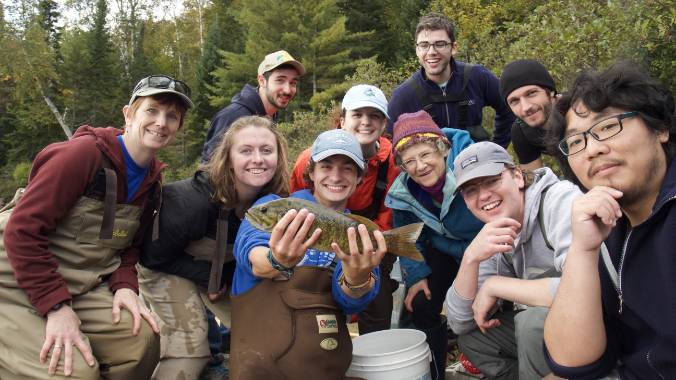DEPARTMENT OF Environmental Biology
Aquatic and Fisheries Science
Work to protect and restore the earth's most precious natural resource.
The management of aquatic ecosystems and restoration of water quality are vital to species survival. Gain in-depth knowledge on a molecular level and hands-on experience in the water assessment as you prepare to collaborate across sectors to achieve common goals in the field.
Science foundation enhanced with field research opportunities.
Challenging coursework helps develop a student’s foundation in science. The AFS Major requires courses in calculus, writing, chemistry, genetics, economics, and biology. Examples of core classes and electives from AFS program faculty include ichthyology, limnology, marine ecology, aquatic restoration ecology, fisheries biology and management, and wetlands ecology. There is also a requirement for six credits of field experience, three of these credits are earned at the Cranberry Lake Biological Station over the summer. A diversity of field and laboratory research opportunities are available with individual faculty in a wide range of habitats and locations.

Aquatic and Fisheries Science Degree Outcomes
Placement rates are high in the areas of fisheries science, wetland science, limnology, marine biology, and oceanography. Jobs are available with federal and state agencies, research institutions, private consulting firms and nongovernmental organizations, both locally and internationally.
Career Options
- Aquatic Biologist
- Fish Hatchery Manager
- Limnologist
- Wetlands Scientist
- Science Teacher
- Restoration Ecologist

